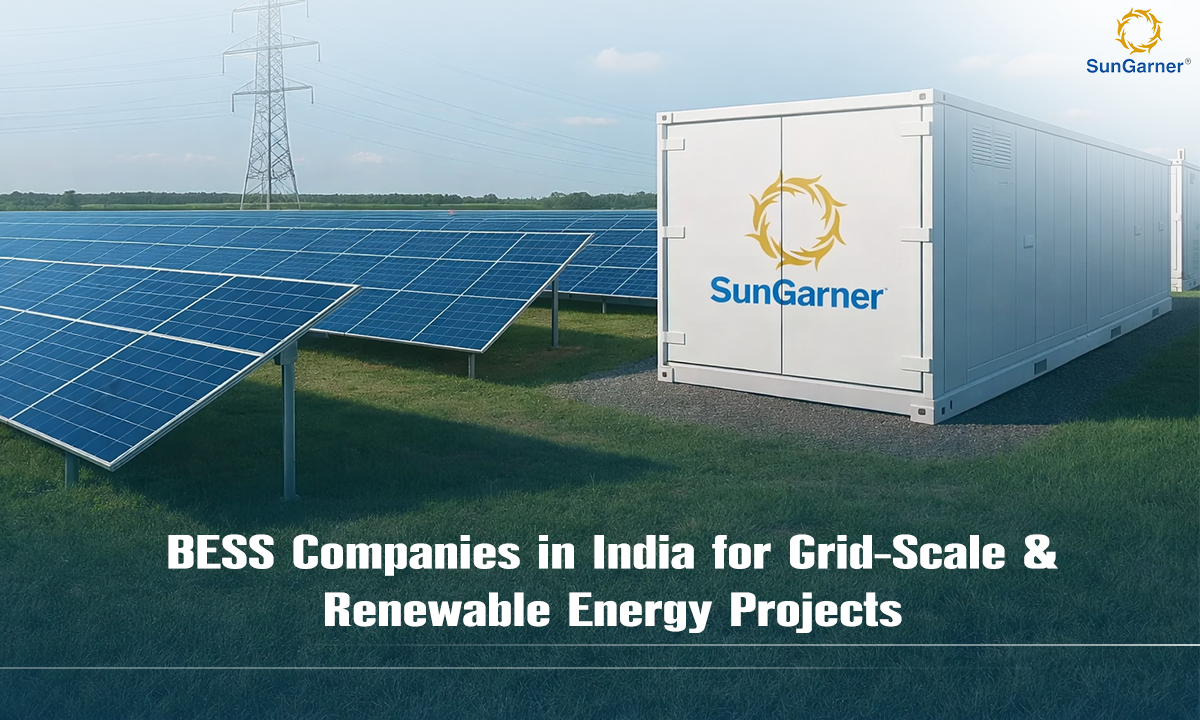Why Lithium-ion Battery Is the Preferred Choice for Modern Solar Systems
As solar energy adoption grows across homes, businesses, and remote areas in India, a common question arises: What is the best battery for solar power storage? The answer is increasingly clear—lithium-ion batteries. Their efficiency, longevity, and low maintenance make them the preferred choice for modern solar systems.
As solar energy adoption grows across homes, businesses, and remote areas in India, a common question arises: What is the best battery for solar power storage? The answer is increasingly clear—lithium-ion batteries. Their efficiency, longevity, and low maintenance make them the preferred choice for modern solar systems.
Whether you're installing a new system or upgrading an existing one, choosing the right battery significantly affects performance, reliability, and return on investment. In this article, we explore why lithium-ion battery for solar system in India is rapidly becoming the industry standard.
1. The Need for Efficient Energy Storage in Solar Systems
Solar energy generation is inherently variable—it depends on sunlight, which fluctuates during the day and is unavailable at night. To ensure uninterrupted power, especially during outages or peak demand, energy storage is essential.
While lead-acid batteries were traditionally used for this purpose, lithium-ion technology has emerged as a more efficient and reliable alternative.
2. Key Advantages of Lithium-ion Batteries in Solar Applications
a. High Energy Density
Lithium-ion batteries store more energy per unit of weight and volume compared to lead-acid batteries. This makes them ideal for space-constrained setups like residential rooftops.
b. Longer Lifespan
These batteries typically last 10 to 15 years, significantly longer than the 3 to 5 years of lead-acid batteries. Over time, this translates into fewer replacements and better long-term value.
c. Fast Charging and High Efficiency
Lithium-ion batteries have up to 95% round-trip efficiency, meaning most of the energy stored is usable. They also charge faster, making them perfect for systems that need to quickly store solar energy during peak sunlight hours.
d. Compact and Lightweight
Their small size and light weight ease the solar battery installation process. For rooftop systems, this helps avoid structural concerns.
e. Low Maintenance
Unlike lead-acid batteries that need regular water top-ups, lithium-ion batteries are virtually maintenance-free, saving time and service costs.
3. Lithium-ion vs. Lead-acid: A Quick Comparison
|
Feature |
Lithium-ion Battery |
Lead-acid Battery |
|
Energy Density |
High |
Low |
|
Lifespan |
10–15 years |
3–5 years |
|
Charging Time |
Fast |
Slow |
|
Efficiency |
Up to 95% |
70–80% |
|
Maintenance |
Minimal |
High |
|
Environmental Impact |
Lower |
Higher |
4. Real-world Applications of Lithium-ion Batteries
a. Residential Solar Systems
In homes, lithium-ion batteries store excess solar power generated during the day for use at night or during outages. This is particularly useful in regions with frequent power cuts.
b. Commercial and Industrial Use
Businesses rely on uninterrupted energy. Lithium-ion batteries support functions like peak shaving, load shifting, and backup, leading to cost savings and operational reliability.
c. Off-grid and Remote Areas
For areas without reliable grid access, lithium-ion batteries provide a dependable and long-lasting solution, ensuring 24/7 electricity supply.
5. Environmental Impact and Sustainability
Lithium-ion batteries are more environmentally friendly than older battery types. Their longer lifespan means fewer replacements, reducing waste.
Forward-thinking companies like SunGarner are incorporating battery recycling programs and sustainable disposal practices to further reduce environmental impact.
By choosing lithium-ion, users contribute to reduced fossil fuel dependence and a lower carbon footprint.
6. Cost Considerations and Trends
While solar battery prices in India for lithium-ion types are higher than lead-acid options, the long-term cost savings are substantial. Higher efficiency, minimal maintenance, and fewer replacements offer better value over the system’s lifetime.
Incentives such as government subsidies under the PM-KUSUM scheme and other state-level policies further reduce the cost of adopting solar-plus-storage systems in India.
7. Future Trends in Lithium-ion Technology
The energy storage industry continues to evolve rapidly. Some emerging trends include:
- Higher energy density batteries
- Improved recycling techniques
- Smarter Battery Management Systems (BMS)
- Reduced costs through technological advancements
SunGarner is committed to staying at the forefront of these developments, offering R&D-backed products that align with the latest global standards in solar energy storage.
8. What to Consider Before Choosing a Solar Battery
When selecting a battery for your solar system, consider:
- Storage capacity (in kWh)
- Cycle life (number of charge-discharge cycles)
- Warranty and after-sales support
- Safety features (e.g., BMS)
- Manufacturer reliability and installation services
Conclusion
The shift toward renewable energy is irreversible—and efficient energy storage is critical to its success. Lithium-ion batteries stand out as the best battery for solar power storage, combining longevity, performance, and sustainability.
Whether you are a homeowner, a business owner, or someone living in a remote area, choosing a lithium-ion battery for solar system in India ensures long-term reliability and value. With trusted providers like SunGarner, you can expect cutting-edge technology, seamless installation, and dependable service.
Frequently Asked Questions (FAQs)
Q1. Are lithium-ion batteries safe for solar systems?
Yes, they are equipped with advanced Battery Management Systems (BMS) to prevent overcharging, overheating, and short-circuiting. SunGarner batteries meet all national and international safety standards.
Q2. How long do lithium-ion batteries last in a solar system?
Typically, they last 10 to 15 years with proper usage. SunGarner provides warranties that reflect this durability.
Q3. Can I upgrade my existing solar system to use lithium-ion batteries?
Yes, many lithium-ion batteries, including those by SunGarner, support retrofit installations for existing solar setups.
Q4. Are lithium-ion batteries expensive?
While upfront costs are higher, they prove economical due to longer lifespan, higher efficiency, and lower maintenance costs over time.
Q5. Does SunGarner provide installation services for lithium-ion battery systems?
Yes. SunGarner offers end-to-end services, including consultation, delivery, installation, and after-sales support across India.








.jpeg)
